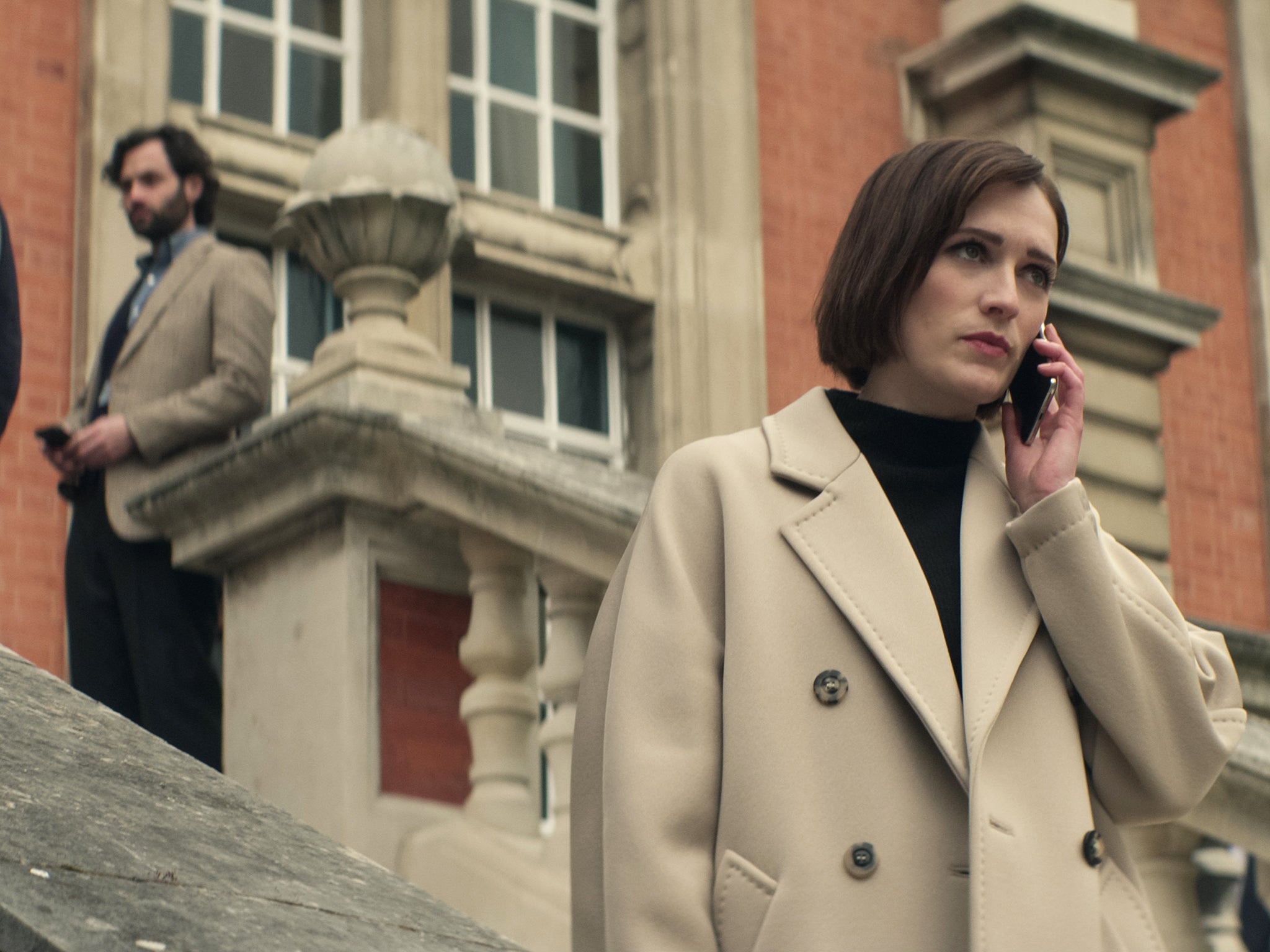‘We shouldn’t be encouraged to take the stalker’s side’: Why You is causing concern among stalking victims
As the fourth season of the hit Netflix series returns, Olivia Petter examines popular culture’s responsibility when it comes to shaping societal views around violence against women


Your support helps us to tell the story
From reproductive rights to climate change to Big Tech, The Independent is on the ground when the story is developing. Whether it's investigating the financials of Elon Musk's pro-Trump PAC or producing our latest documentary, 'The A Word', which shines a light on the American women fighting for reproductive rights, we know how important it is to parse out the facts from the messaging.
At such a critical moment in US history, we need reporters on the ground. Your donation allows us to keep sending journalists to speak to both sides of the story.
The Independent is trusted by Americans across the entire political spectrum. And unlike many other quality news outlets, we choose not to lock Americans out of our reporting and analysis with paywalls. We believe quality journalism should be available to everyone, paid for by those who can afford it.
Your support makes all the difference.Joe Goldberg’s most prized possession is a box. At first, you might think its contents rather innocent: an old phone here, a photograph there. Then you notice the women’s underwear. The tampon. The teeth. The box is chilling – and so is Joe, the antagonist of Netflix’s hugely popular thriller You. Played by former Gossip Girl pin-up Penn Badgley, Joe is a serial killer-slash-stalker who is just as good at melting hearts as he is at crushing skulls. Sometimes he even puts them into a meat grinder.
Joe’s various stalking crusades have formed the premise of You for three seasons, with Goldberg fixating on different targets each time. Now, a fourth season of the hugely popular series is launching today. You is no doubt engrossing. But as thrilling as it may be to fancy a murderer (most viewers seem to), the show has been repeatedly criticised for romanticising stalking.
Even Badgley has felt compelled to step in. The actor has often replied to thirsty tweets in an effort to remind viewers that his character isn’t a handsome hero; he is a dangerous killer. The trouble is that instead of coming across as a brazen sociopath, Joe elicits sympathy from the audience – partly because the story is told from his point of view.
In the style of Lolita’s paedophile protagonist Humbert Humbert, Joe is strangely likeable. His charm means that viewers are inclined to look past his abhorrent actions, or even dismiss them entirely, finding justification where there is none. It’s this that seems most troubling, because stalking isn’t fictional fodder. It’s a very real – and very dangerous – crime. In the UK, reports of stalking cases have been increasing for the past decade.
In 2020, more than 80,000 incidents of stalking were recorded by police officers in England and Wales, the Office for National Statistics reports – a steep increase from the 27,156 incidents reported the year before. Meanwhile, in the year to September 2022, stalking and harassment accounted for a third (34 per cent) of all police-recorded violence. There are different types of stalking, too.
According to the late Dr Ronald M Holmes, criminologist and author of Serial Murder, these include: political (stalking motivated by political beliefs), celebrity (those who stalk famous people), and the two categories that Joe falls into, which are domestic (stalking a former spouse) and lust (also be called “love obsessional”). In these instances, the stalker often becomes completely consumed by the target and begins behaving in a way so that they become increasingly aware of their existence. All of these forms of stalking can be carried out online, offline, or both.
“I think that as entertaining as shows like this can be, it is always dangerous to romanticise things like stalking,” says Jess*, 35, who, like some of Joe’s victims, was stalked by an ex-boyfriend. “He would try and follow me around, often using a different car so I wouldn’t recognise him,” she recalls. “He didn’t live or work anywhere near me but would drive down to my house to see if I was there, and park down the road.” Jess had blocked her ex on all social media platforms – but he continued to see her content through alternative accounts.
I think it’s dangerous. It can bring ideas into reality for some
A similar, though more random, encounter was experienced by Francesca, 33, while on a night out with some friends. “On my way home, I walked past a restaurant and noticed a group of men smoking outside,” she remembers. “When I got to my bus stop 10 minutes later, I turned around and noticed that one of the guys smoking had followed me there. He struck up a conversation and got a lot of information out of me, including my full name, age, and where I worked.”
This man told Francesca that he lived in the opposite direction to her but ended up getting on her bus. “I got off at my stop and he got off too, but he was behind some other people. I ran all the way back to my house and locked the door.” Looking back, Francesca remembers how oddly charming he seemed at first. “He was also extremely good-looking,” she says. “I think a lot of people are more trusting of people like that, or perhaps think that someone like that wouldn’t be a stalker.”
In this way, You arguably gets something right. By allowing the viewer to see the world from a stalker’s point of view, the show highlights how easy it can be to hide sinister intentions behind good manners and a great beard. But when so many viewers are fixating purely on Joe’s charm and good looks, it’s not clear how many of them are looking beyond that. After all, this is a TV drama, not a documentary. “We shouldn’t be encouraged to take the side of the stalker,” adds Francesca. “‘You’has managed to make it so that we do. And anything that normalises this kind of behaviour or justifies it in any way is very dangerous to both potential victims and potential stalkers.” Since You’s inception, the Stalking Prevention, Awareness, & Resource Center (SPARC) has been publishing educational guides on its depiction.
“For three seasons, we’ve seen Joe target and stalk several romantic interests,” they write. “His goal was to find ‘the one’ and he’s justified everything to himself, from peering into windows to outright murder, in order to pursue these women. Stalkers are often portrayed as romantic, idealistic figures with good intentions who are simply trying to win over the women they love.”
What can be difficult, though, is to separate this from reality. “It’s a romantic fantasy to think that someone might immediately see the real us and fall in love instantly – it’s exciting to feel like someone sees us and thinks we’re special, attractive, and desirable,” adds the SPARC. “While people can certainly be attracted and/or interested in someone from an early stage, fixation after one meeting is not normal or healthy. In real life, most stalkers are not people we want attention from. They are usually ex-partners or acquaintances who are trying to scare their victims.” According to Safer Futures, the majority of stalking victims (80.4 per cent) are female while the majority of perpetrators (70.5 per cent) are male. But there are several stories that fall outside of these statistics.

Take Tilly*, 55, who has been stalked by an ex-boyfriend’s partner for several years. “At first, she suggested we should be friends,” Tilly recalls. “But then she started to send abusive texts pretending to be him, and calling me in the early hours.” Tilly’s stalker made several fake social media profiles, pretending to be other people from her past, including someone she had recently reconnected with from school. Soon, she was sending packages to her house. “There was a scarf and some chocolates in one,” says Tilly. “I have ignored, blocked, and deleted – but she keeps getting in touch somehow; there is a style of writing and words she uses that makes it easy to spot when it’s her.”
For people like Tilly, it’s not helpful to see stalking portrayed on screen the way it is in You. “I think it’s dangerous,” she says. “It can bring ideas into reality for some. Those who have that mindset, one where they might be unbalanced or somewhat disturbed, could be triggered into acting on it because seeing it in a hit show could potentially normalise it for them, and push them towards thinking it is acceptable.”
With all this in mind, perhaps greater care over pop culture’s representations of stalking is needed. “Stalking is sadly all too common,” says a spokesperson for the Suzy Lamplugh Trust, which offers support to victims of stalking. “While we believe popular culture can play a crucial role in raising awareness about the prevalence of this crime, it is important that such depictions do not seek to trivialise or romanticise the relationship a stalker has to their victim.”
As for Joe, we don’t yet know how far he'll go this season. To many, yes, the series feels so detached from their own reality that it seems almost funny. Hot, even. But to those who’ve actually been stalked, the experience of watching You is something different altogether – and we need to take that very seriously.
The Independent has contacted Netflix for comment.
If you or someone you know is currently being stalked, or fear that they might be, please call the National Stalking Helpline on 0808 802 0300, or visit the Suzy Lamplugh Trust’s website here.
*Names have been changed



Join our commenting forum
Join thought-provoking conversations, follow other Independent readers and see their replies
Comments